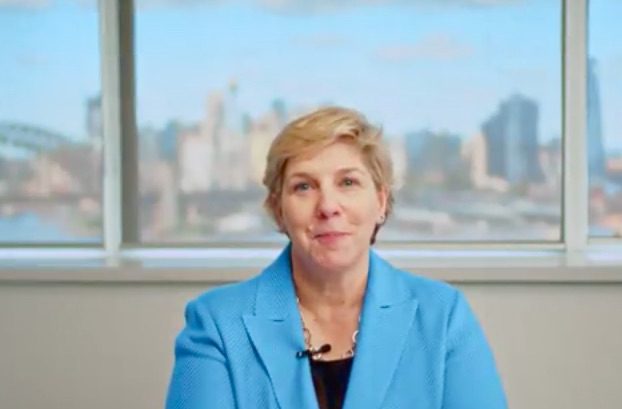Robyn Denholm, the Australian executive who is chair of global electric vehicle and battery storage leader Tesla, has lamented the dirty car fleets of her home country and in New Zealand, along with the death toll caused by dangerous vehicle pollution.
In a video address to the NZ parliament, which is considering adopting a clean fuel target that would set a cap of 105 grams of Co2 per kilometre, Denholm said it was ironic how the two countries led the world in so many ways, including clean energy, but trailed so badly in clean road transport.
“Down here in the Antipodes, we Kiwis and Aussies are ahead of the world in many ways, like our sporting ability and timezones, but we’ve been behind on cleaning up our vehicle fleet,” Denholm said in a video recorded in Sydney (See above). The event was hosted by NZ lobby group Drive Electric and NZ climate change minister James Shaw.
“In fact, we have amongst the most polluting vehicle fleets in the world. We need to tackle that, to give our kids a safe climate, but also to give them clean healthy air to breathe.
“Because vehicle pollution is fatally dangerous, especially to young kids and people with respiratory problems over 250 Kiwis die each year from vehicle pollution. It’s a second road toll just as tragic as car accidents.”
(Australia’s annual road toll from pollution from petrol and diesel tailpipes is put at more than 1,750).
Denholm noted that Australia and New Zealand were blessed with “phenomenal” renewable energy resources, such as hydro and geothermal assets, as well as solar and wind.
“It gives you a huge head start on decarbonising transportation because electric vehicles run on local renewables, instead of imported oil.”
Denholm applauded the NZ Climate Change Commission proposal on clean car standards to target a reduction in average vehicle emissions to 105 grams CO2 per kilometer by 2025, down from its current average emissions of around 171gCO2/km.
“That’s an entirely achievable target, It’s a necessary target. I would even say it’s a conservative target,” she noted, adding that Europe is already at 95 grams and headed towards 80 grams by 2025, and Japan, China and the US also have strong targets already in place. That CCC recommended target has been endorsed by the NZ government.
Australia, by contrast, has no clean car standards and little prospect of delivering one. The main industry body is proposing an equally weak target of voluntary reductions of around 4% a year, which amounts to a target of around 100g-105gCO2/km by 2030, but insists on making this both voluntary and subject to various offsets.
New data released by the FCAI shows that the average emissions from cars in the past year is 150g/t.
However, the Australian government’s Future Fuels Strategy does not contemplate any clean car standard, and it also refuses to set any EV targets, or EV incentives, and argues instead for a focus on “mild hybrids” as the most effective means of cutting pollution. Some countries such as Norway are banning hybrids as early as 2025.
Australia’s refusal to embrace EVs comes even though the lack of a fuel standard has made the country a dumping ground for old car technologies, with higher fuel costs (an additional $600 per year per car, according to government data) that inflates the country’s massive fuel import bill and its fuel security risks.
New Zealand has so far registered 26,123 plug-in electric vehicles, most of them used cars such as the popular Nissan Leaf imported from Japan. Tesla leads the new electric car sales with a total of 2,327 EVs, most of them the Model 3, out of a running total of new fully electric EVs of 6,155. Its global sales were half a million in 2020.
“At Tesla, our mission is to accelerate the world’s transition to sustainable energy,” Denholm said. “We have to make that transition to survive. The question is, how quickly. Every year, every tonne of emissions every 10th of a degree is crucial.
“This requires government leadership. This electric future saves you money on petrol, it strengthens your economy, and it saves lives. Thanks to everyone involved in accelerating this transition.”
She also noted her own driving holiday in NZ in, of course, an electric vehicle.
“I was in New Zealand just before Covid for two glorious weeks, we traveled entirely in electric vehicles from Wellington, up to Auckland … and on the South Island … all the way down to the gorgeous Milford Sound,” Denholm said. “And I have to say the electric vehicle infrastructure was amazing, world class.”

Giles Parkinson is founder and editor of The Driven, and also edits and founded the Renew Economy and One Step Off The Grid web sites. He has been a journalist for nearly 40 years, is a former business and deputy editor of the Australian Financial Review, and owns a Tesla Model 3.

